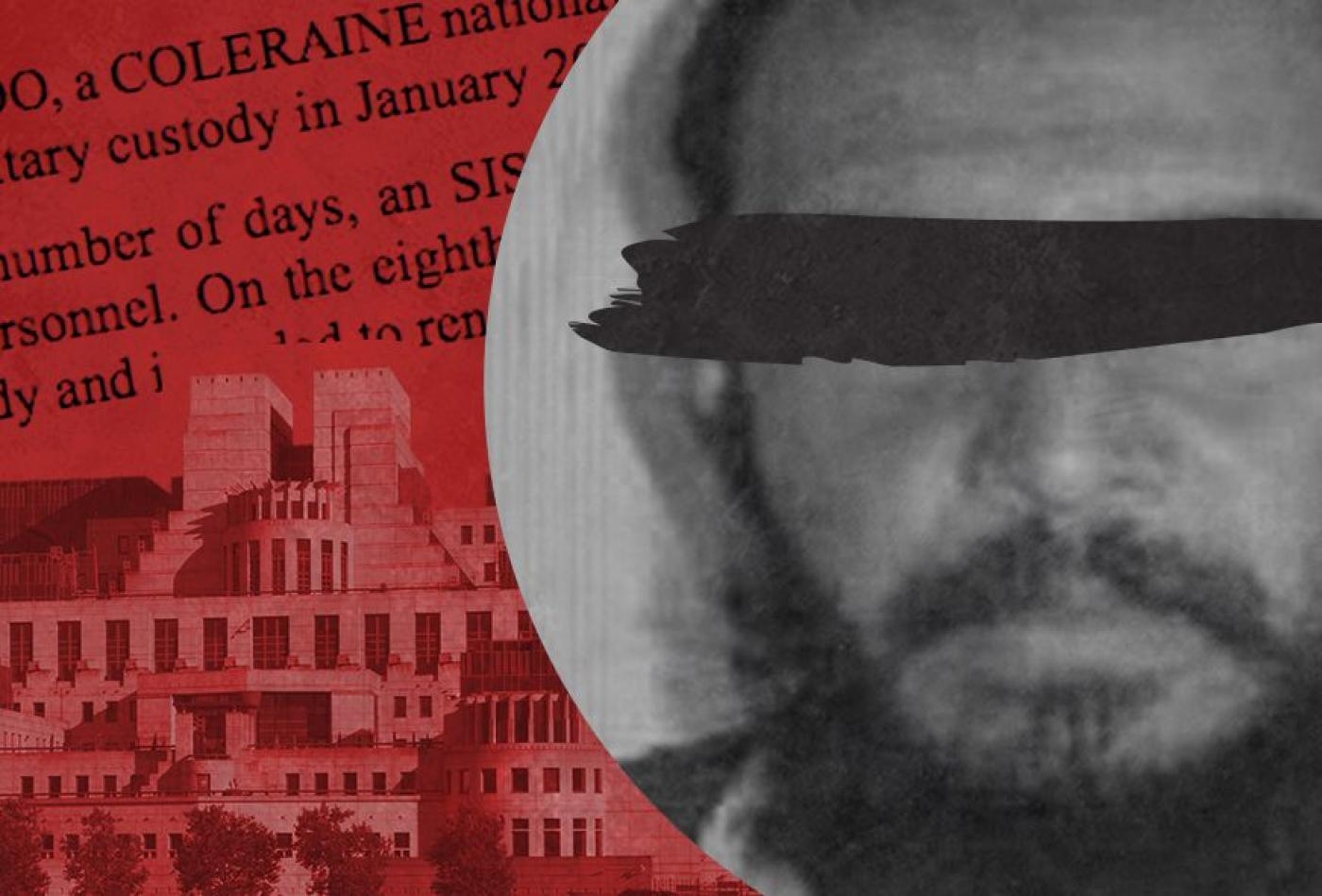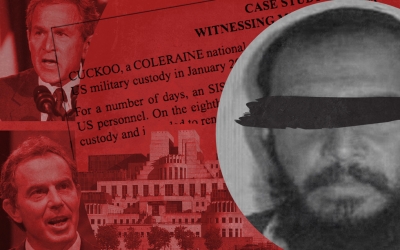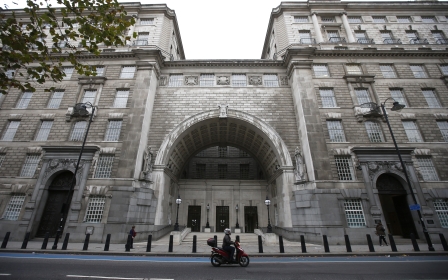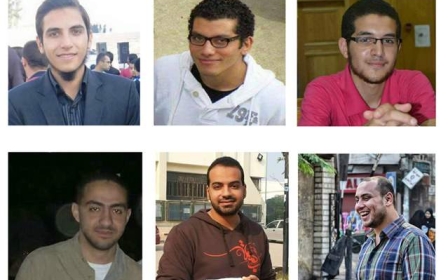UK spy agencies used details extracted under torture to detain Libyans, say lawyers

The UK’s intelligence agencies drew upon information extracted under torture from two key CIA rendition victims to justify the detention and threatened deportation of several Libyans living in Britain, the high court in London heard on Friday.
Both MI5 and MI6 were complicit in the interrogation of Abu Zubaydah and Sheikh Ibn al-Libi before the Libyans were rounded up and detained in the years following 9/11 and others subject to financial sanctions, the court was told.
Eleven people, most of them members or associates of the Libyan Islamic Fighting Group (LIFG), are suing the British government and its intelligence and security agencies, alleging unlawful imprisonment, blackmail and malfeasance in public office.
New MEE newsletter: Jerusalem Dispatch
Sign up to get the latest insights and analysis on Israel-Palestine, alongside Turkey Unpacked and other MEE newsletters
After spending years trying unsuccessfully to have the claim struck out, government lawyers are now contesting the extent to which the agencies’ files must be searched for evidence that supports the Libyans’ claims.
They have agreed to carry out searches against the names of eight men who were detained in Libya during the so-called war against terror, including those of several men who were kidnapped in 2004 and rendered to Tripoli along with their families, with British assistance.
The UK prime minister, Theresa May, apologised to one of these men, Abdul-Hakim Belhaj, and his wife, last year after UK government lawyers spent six years resisting his claim. The second, Sami al-Saadi, settled his claim following a £2.2m payment from the British government in 2012.
However, the government’s lawyers are refusing to agree to searches against the names of Zubaydah or Libi.
These two men are “core individuals, intrinsically linked” to what happened to the 11 claimants, their counsel Danny Friedman told the court.
Government lawyers will argue that any material about these men that is held in the agencies’ files will be immaterial to the court case.
Detained over extracted details
Many of the 11 claimants had lived in the UK for several years before they were detained on the basis of information being extracted from detainees in Libyan prisons. When the men appealed against proposals to deport them, the courts were not told of the UK’s role in the kidnap of Belhaj and Saadi.
Last year, an inquiry by the UK Parliament’s Intelligence and Security Committee found that as well as being involved in the kidnap of Belhaj and Saadi, MI5 and MI6 put questions to Zubaydah despite MI6 having “direct awareness of [his] extreme mistreatment and possibly torture”.
Zubaydah had been waterboarded 83 times and subjected to a range of other kinds of torture.
The committee also reported that MI5 put a series of questions to a prisoner whom an MI6 officer had seen being placed in a coffin at the US detention facility at Bagram, north of Kabul, and driven to a waiting aircraft. Middle East Eye disclosed last year that this prisoner was Libi.
Zubaydah is currently being held at Guantanamo Bay.
Libi was flown first to Egypt and eventually imprisoned in Libya, where he died in 2009. Muammar Gaddafi’s government claimed he had committed suicide. Human Rights Watch reported that photographs taken apparently on the day of his death show bruising on his body.
During previous hearings, lawyers for the claimants have alleged that the relationship that MI5 and MI6 forged with Gaddafi and the Libyan External Security Organisation amounted to “a criminal conspiracy with a foreign dictator”.
Much of their case is based upon a large cache of MI6, CIA and Libyan intelligence documents that were discovered in Tripoli during the 2011 revolution.
These included a fax in which a senior MI6 officer, Mark Allen, claimed credit for the rendition of Belhaj and his wife, Fatima Boudchar, whom he referred to as “air cargo”.
They also included Libyan intelligence officers’ minutes of meetings with MI5 officers before and after their encounter with a Libyan refugee in London. The minutes show this man was being intimidated in an attempt to recruit him as a spy.
“The claimants allege systematic, prolonged and serious mistreatment by agencies of the UK state, known to senior employees and politicians,“ their lawyers said in written submissions to the court. “They have a strong evidential case for these allegations.”
The case - much of which is being heard in secret - has been underway for seven years, with the claimants’ lawyers accusing government lawyers of adopting a “treading water defence”.
Middle East Eye delivers independent and unrivalled coverage and analysis of the Middle East, North Africa and beyond. To learn more about republishing this content and the associated fees, please fill out this form. More about MEE can be found here.





